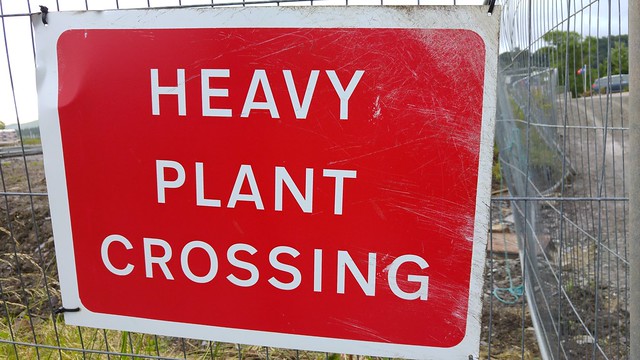Words for heavy and related things in Celtic languages.
Words marked with a * are reconstructions.
| Proto-Celtic | *trummos = heavy |
|---|---|
| Old Irish (Goídelc) | trom = heavy, burden, distress, elder, weight trummae = heaviness |
| Middle Irish (Gaoidhleag) | trom = heavy, great, vast, powerful, mighty, weight, burden, bulk, severity, distress, difficulty, sorrow, blame, censure trummae, truime = heaviness, weight, severity, rigour, sorrow, grief |
| Irish (Gaeilge) | trom [t̪ˠɾˠuːmˠ] = weight, burden, oppression, bulk, preponderance, importance, blame, heavy, stodgy, dense, thick, abundant tromábhal = massive troime = heaviness, weightiness tromaí = weighty, onerous, grave, serious, heavy-handed tromaigh = to become heavier, make heavier, add weight to, intensify, deepen, press upon tromán = weight tromas = oppression, distress |
| Scottish Gaelic (Gàidhlig) | trom [trɔum] = heavy; weighty, ponderous; pregnant; deep, profound; oppressive (mood); mournful, melancholic; burden, weight tromach = heavy / clunky one tromadach = bulky, large, substantial, massive, ample, weighty, lumpish tromaich = make/become heavy, burden, load, oppress troman = great weight |
| Manx (Gaelg) | trome [t̪roːm] = heavy, difficult, grave, substantial, weighty, deep, sweated, emphatic, hard, gruelling, harsh tromey = heavy, grievous trommey = heavy |
| Proto-Brythonic | *trumm = heavy |
| Middle Welsh (Kymraec) | trum, trỼm, trom, trwm = heavy, solid, bulky, large |
| Welsh (Cymraeg) | trwm [trʊm] = heavy, solid, bulky, large, thick, intense, severe, hard, excessive; extensive, plentiful; boring, abstruse; close, muggy, oppressive trwmgalon, trymgalon = heavy-hearted, sad, sorrowful, downhearted, troubled, sadness trymhau = to make/become heavier pendrwm = downcast, downhearty, sorrowful, dejected |
| Middle Cornish (Cernewec) | trom = heavy, weighty, sad |
| Old Breton | trum = heavy (?) |
| Middle Breton (Brezonec) | trum, trumm = quickly, fast, soon, sudden |
| Breton (Brezhoneg) | trumm = sudden |
The Breton words might not be cognate with the words in the other languages.
Etymology: from Proto-Indo-European *trewd (thrust, press) [source].
Words from the same roots include intrude, protrude, threat and thrust in English, troid (fight) in Irish, trod (quarrelling, wrangling, scolding) in Scottish Gaelic and troddan (campaign, fight, quarrel) in Manx [source].
| Middle Irish (Gaoidhleag) | pís = name of a weight, pennyweight |
|---|---|
| Proto-Brythonic | *puɨs = heavy |
| Middle Welsh (Kymraec) | pvys, pwys = weight pwysedic = weighed, pressed, weighty, heavy pvysuaur, pwys-fawr = heavy, important, momentous, serious pwyssic = important, weighty, momentous |
| Welsh (Cymraeg) | pwys [puːɨ̯s/pʊi̯s] = weight, pressure, impetus, burden, pound (lb) pwysaf, pwyso = to weigh, be heavy, press, emphasize pwysedig = weighed, pressed, weighty, heavy pwysedd = pressure pwysfawr = heavy, important, momentous, serious pwysig = important, weighty, momentous, cautious |
| Middle Cornish (Cernewec) | poys, pôs, poes, poays, boys = weighty, heavy, grevious poesder, pysder = weight |
| Cornish (Kernewek) | poos = heavy, emphasis, importance, pressure, weight, muggy poosa = to weigh posek = important poster = heaviness |
| Old Breton | pois, puisou = heavy, important, strong |
| Middle Breton (Brezonec) | pouez = weight, authority, heavy peosaff, poesa = to weigh poesant = heavy poesus = heavy |
| Breton (Brezhoneg) | pouez [ˈpweːs] = weight, rhythm, importance pouezañ [ˈpweːzã] = to weigh, insist pouezadenn [pweˈzɑːdɛn] = weighing, pressure pouezant = heavy pouezer [ˈpweːzɛr] = weighing pouezus [ˈpweːzys] = important |
Words marked with a * are reconstructions.
Etymology: from Vulgar Latin *pēsum, from pēnsum (allotment, portion, weight) [source]. Words from the same roots include poids (weight) in French, and peso (weight) in Italian and Spanish [source].
| Middle Breton (Brezonec) | ponnher, ponner, pouner = heavy, important, strong |
|---|---|
| Breton (Brezhoneg) | pounner [pu.nɛʁ] = heavy, exaggerated, strong, serious pounneraat = to gain weight pounnerder = gravity pounnerglev = hard of hearing |
Words marked with a * are reconstructions.
Etymology: unknown
Sources: Wiktionary, Am Faclair Beag, Online Manx Dictionary, Teanglann.ie, eDIL – Electronic Dictionary of the Irish Language, In Dúil Bélrai English – Old Irish glossary, Geiriadur Prifysgol Cymru, Gerlyver Kernewek, Gerlyvyr Cernewec, Lexicon Cornu-britannicum: A Dictionary of the Ancient Celtic Language of Cornwall, Dictionaire Favereau, TermOfis, Le dictionnaire diachronique du breton, Geriafurch, English – ProtoCeltic WordList (PDF), Etymological Dictionary Of Proto Celtic

